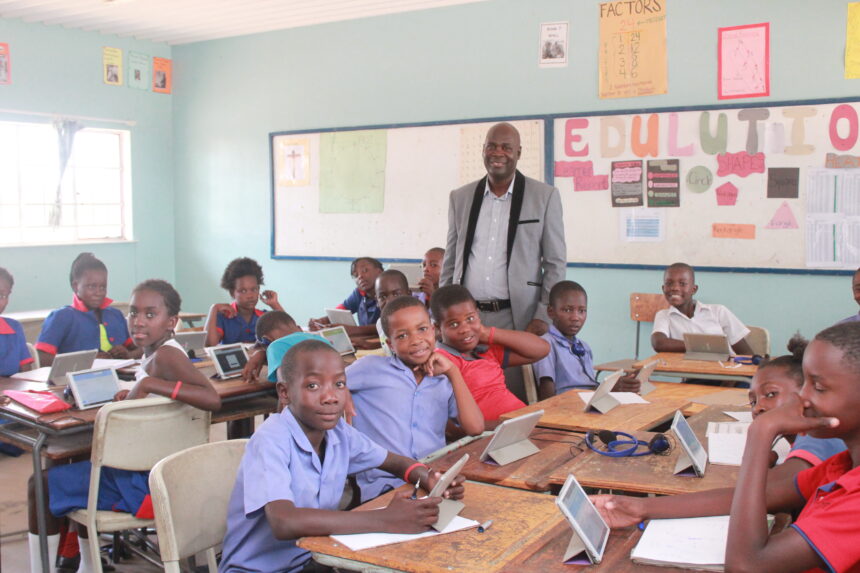The National Institute for Educational Development (NIED) has turned its focus towards developing a high-quality e-learning curriculum that is comparable to the best in Africa and the world.
NIED is a national resource for the mobilisation of both human and physical resources in improving the quality and relevance of education through innovative curriculum and materials development, research, education and training, and by linking the education ministry to the local community and Namibia to the international community in these fields.
NIED is currently developing free-quality e-learning content for all learners.
NIED director Patrick Simalumba stated that the inclusive education curriculum framework was developed, and syllabuses for children with special needs are implemented.
“After the outbreak of Covid-19, the ministry intensified the training of teachers on learning support. Both the girl and boy child can follow fields of study of their choice, irrespective of gender differences,” he noted.
NIED ensures that education in Namibia is developed through research on world trends in specific subjects and school levels.
The institute applies a networking approach to curriculum development, involving working with stakeholders from the private sector, vocational training centres, institutions of higher learning, ministries, agencies, non-governmental organisations as well as private and public
schools.
The curriculum should respond to the National Development Plans (NDPs).
In designing the curriculum, the institute ensures that it blends knowledge, thinking, innovation, skills, ICT literacy and real-life experiences in the context of core academic and practical pre-vocational subjects.
NIED evaluates textbooks to ensure compliance with curriculum expectations. Subject policy and promotion policy guides were developed.
The director pointed out that this minimises inconsistencies and provides a framework for uniform learner promotion, retention practices and reporting on their progress.
Simalumba furthermore explained the underlying principle of basic education as being to nurture the holistic development of all individuals, and to promote the social and economic welfare of society.
“This implies that the achievement of fairness in education should demand educational policies, which value and promote the multifaceted development of the learners, taking into account their uniqueness so that they can fully and rationally participate in the economic, cultural and social affairs of the nation,” he emphasised.
Officials from NIED are also involved in monitoring and supporting at the school level in regions to complement regional efforts.
Subject experts support regions to conduct the training of teachers through workshops on request, according to regional needs.
NIED also networks, liaises and exchanges research, ideas and practices with counterparts in SADC and internationally, such as Cambridge International.
Simalumba said the successful implementation of the curriculum depends on multiple factors referred to as conditions for successful curriculum implementation.
Language development is also an area of focus for NIED. Namibia is rich in languages, but its development has been unequal.
Practically, they are supposed to have a language development centre under the national language board responsible for language development.
He observed that curriculum development is different from language development. Namibia has 11 local languages in schools as part of the curriculum.
The development of textbooks by publishers is a challenge since the enrolment of learners in some African languages is low for private publishers and individuals to invest funds in the development of textbooks.
The education ministry had completed the implementation of a major reform, which started with the implementation of the junior primary phase in 2015, senior primary in 2016, junior secondary in 2017/18, NSSCO in 2019/20, and AS level in 2021.
NIED feels it is critical that a period of stabilisation and consolidation is observed.
However, the debates from the 2022 National Conference on Education, Arts and Culture call for vigorous efforts to support the implementation of the reformed curriculum.
Early childhood development (ECD) for children who are 3-4 years old is expected to be progressively and systematically transferred from the gender equality ministry to the ministry of education through cost-effective strategies.
This, NIED believes, will be a huge gradual project in terms of policy reviews, curriculum, training of educators and learning support material development. ECD lays a stronger foundation for early-grade literacy and numeracy.
This will eventually have a transforming effect on the child’s schooling cycle in later grades and in life. –anakale@nepc.com.na


